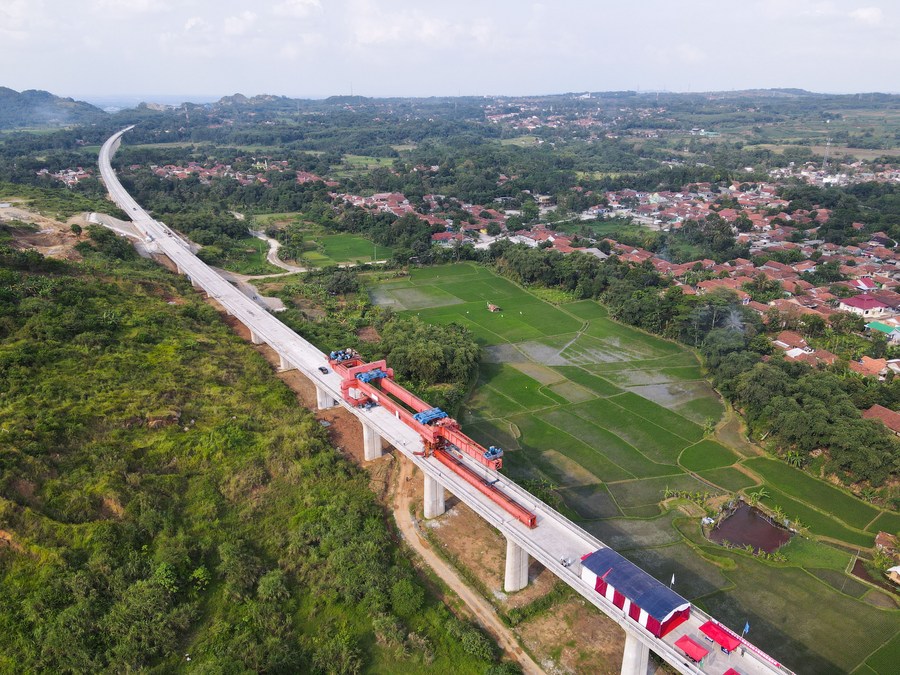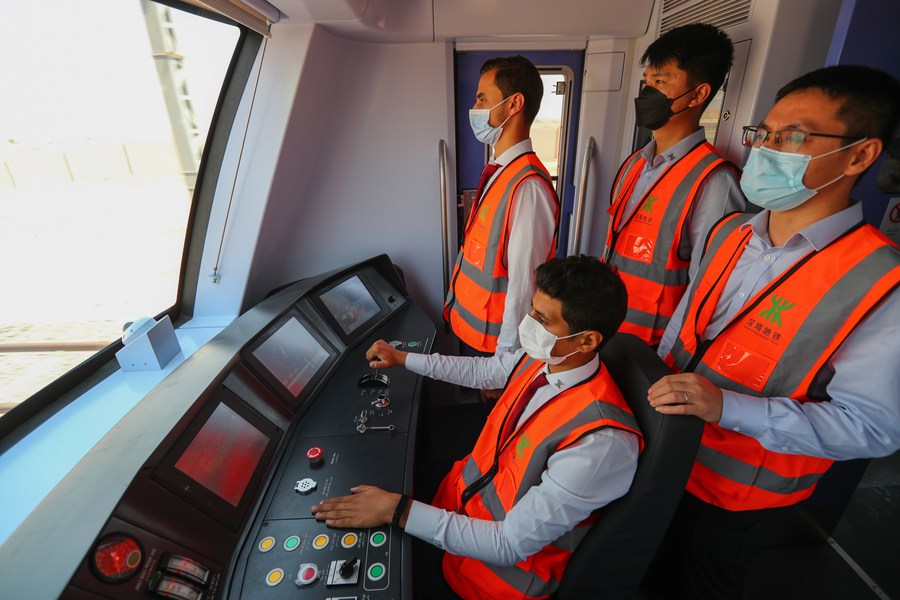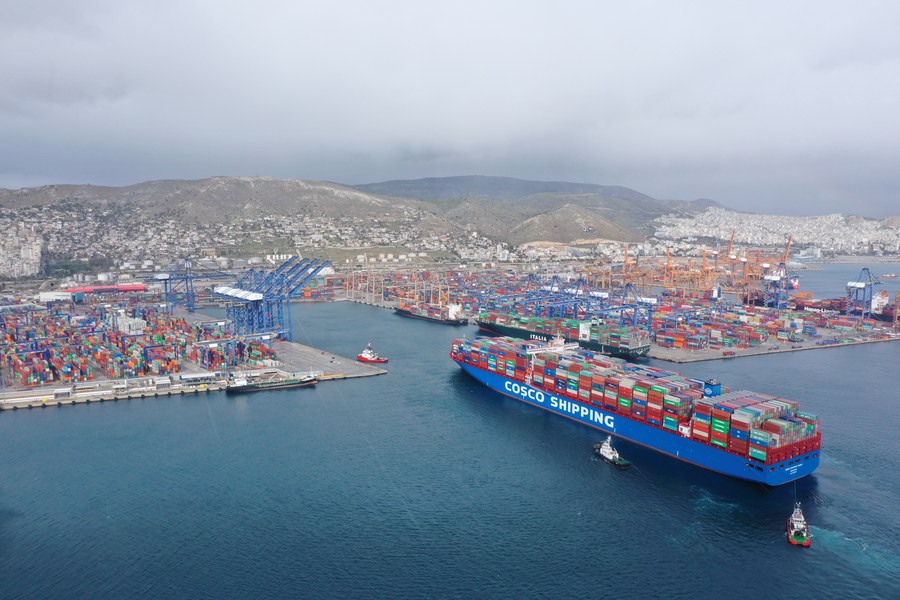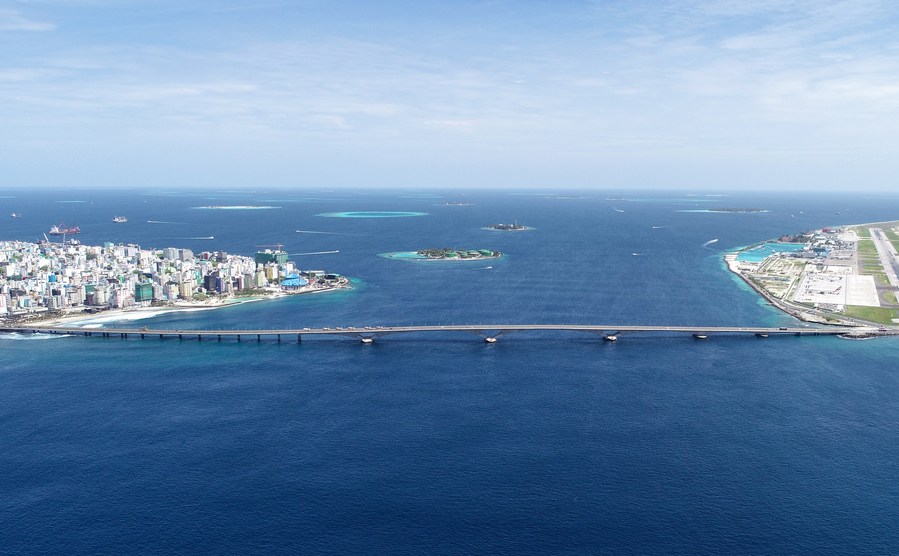*Over the past 40 years, China has contributed close to three-quarters of the global reduction in the number of people living in extreme poverty, according to a joint report released in April by China's Ministry of Finance, the Development Research Center of the State Council, and the World Bank. The World Bank also estimates that the infrastructure investment in the China-proposed Belt and Road Initiative (BRI) could lift 7.6 million people worldwide out of extreme poverty and 32 million out of moderate poverty.
*Over the past decades, China has been not only talking about fixing the peace deficit through the pursuit of common, comprehensive, cooperative and sustainable security, but also walking the talk with concrete actions.
*Since 1990, China has dispatched over 50,000 peacekeepers to nearly 30 UN peacekeeping missions. It is the second-largest funding contributor to UN peacekeeping operations and has contributed more peacekeepers than any other permanent members of the Security Council.
*Always championing a new type of international relations based on mutual respect, fairness and justice, and win-win cooperation, China consistently maintains that all countries -- big or small, rich or poor -- are equal members of the international community.
A protracted pandemic rarely seen in a century, the rising tide of de-globalization, a wobbling global economy ... the list of unprecedented challenges tormenting humanity as a whole seems unending, and is growing.
In this dire moment for the human race, the global community must come together, and better coordinate its actions. And to tackle the root causes of those planetary conundrums, the world needs to fix global deficits in peace, development, trust, and governance. For that end, China's visions and commitment evident in the twice-in-a-decade national congress of the ruling Communist Party of China (CPC) are of global relevance.
DEVELOPMENT HOLDS THE KEY
Development is the eternal theme of human society and a master key to addressing major problems, especially poverty.
Over the past 40 years, China has contributed close to three-quarters of the global reduction in the number of people living in extreme poverty, according to a joint report released in April by China's Ministry of Finance, the Development Research Center of the State Council, and the World Bank. The World Bank also estimates that the infrastructure investment in the China-proposed Belt and Road Initiative (BRI) could lift 7.6 million people worldwide out of extreme poverty and 32 million out of moderate poverty.

This aerial photo taken on Oct. 16, 2022 shows the construction site of the erection of the last box girder along the Jakarta-Bandung High-Speed Railway in Purwakarta, Indonesia. (Xinhua/Xu Qin)
While reducing destitution is important, it is always a common desire for people everywhere to pursue a better life. This demands not only faster development, but more balanced and equitable development.
China will accelerate creating a new development pattern and pursue high-quality development, said Xi Jinping, general secretary of the CPC Central Committee, in his report to the 20th CPC National Congress.
"We must fully and faithfully apply the new development philosophy on all fronts, continue reforms to develop the socialist market economy, promote high-standard opening up, and accelerate efforts to foster a new pattern of development that is focused on the domestic economy and features positive interplay between domestic and international economic flows," Xi said.
China's commitment to promoting high-standard opening up is very positive for the rest of the world, as countries are recovering from the COVID-19 recession, said Oh Ei Sun, principal adviser for Malaysia's Pacific Research Center.
In a recent joint interview with Chinese media, Dominican Prime Minister Roosevelt Skerrit called the BRI "one of the most remarkable initiatives," since China helped build the infrastructure to boost the economy, create jobs, boost resilience in terms of natural disasters, and address poverty in terms of climate change in Latin America and Africa.
In September 2021, with the future of all humanity in mind, Xi put forward the Global Development Initiative (GDI) at the general debate of the 76th session of the UN General Assembly.
The initiative calls for staying committed to development as a priority, to a people-centered approach, to benefits for all, to innovation-driven development, to harmony between man and nature, and to results-oriented actions.
For Skerrit, the GDI creates a favorable mechanism for developing countries that focuses on cooperation and partnerships, and is dedicated to addressing such issues as extreme poverty, food security, access to vaccines, and climate change.
The China-proposed development initiatives exemplify a correct understanding of global issues as well as a focus on collective progress, said Farhad Javanbakht Kheirabadi, a China scholar at Shahid Beheshti University in Iran.

An Egyptian driver operates a light rail train during a trial run of Egypt's first electrified light rail transit (LRT) system jointly built by Chinese and Egyptian companies, in Cairo, Egypt, July 3, 2022. (Xinhua/Sui Xiankai)
A SAFER WORLD
While delivering a keynote speech via video at the opening ceremony of the Boao Forum for Asia Annual Conference 2022 in April, Xi proposed the Global Security Initiative (GSI), offering a China solution to the questions posed by the times such as what security concept the world needs and how countries can achieve common security.
The initiative advocates cooperative and synergy-driven approaches to replace the zero-sum Cold War mindset of maximization of security through power contestation and arms racing, Pakistani Prime Minister Shahbaz Sharif told Xinhua.
Carrying forward the spirit of the UN Charter, the initiative provides a fundamental solution to eliminating the peace deficit, said Kin Phea, director-general of the International Relations Institute at the Royal Academy of Cambodia.
Over the past decades, China has been not only talking about fixing the peace deficit through the pursuit of common, comprehensive, cooperative and sustainable security, but also walking the talk with concrete actions.
Since 1990, China has dispatched over 50,000 peacekeepers to nearly 30 UN peacekeeping missions. It is the second-largest funding contributor to UN peacekeeping operations and has contributed more peacekeepers than any other permanent members of the Security Council.
In the eyes of Csaba Korosi, president of the 77th session of the UN General Assembly, China has been "a strong buttress to the blue flag (of the UN)."
China has also played an active part in tackling security challenges of various forms and safeguarding regional peace within regional mechanisms such as the Shanghai Cooperation Organization.
Joseph Matthews, a senior professor at the BELTEI International University in Phnom Penh, said that China-proposed initiatives including the GSI are "essential to reinforce multilateralism, international cooperation and solidarity to address global challenges and concerns for common interests."
Building a global community of security for all "addresses the issues of peace deficit and governance deficit, and seeks peace and development," which will certainly gain steam, said B. R. Deepak, chairperson of the Center of Chinese and Southeast Asian Studies at the New Delhi-based Jawaharlal Nehru University.
GLOBAL GOVERNANCE THAT WORKS
More than two years into the once-in-a-century pandemic, the global sustainable development is facing strong headwinds, the North-South gap keeps widening, and crises are emerging in food and energy security. Yet some countries have chosen coercion over cooperation, willfully slapped sanctions, and stoked divisions worldwide. These all cast shadow on the future of the global governance.
While this is an age where all countries should jointly rise to their common challenges, they should also respect each other's core interests and choice of development paths, treat each other as equals, and reject the practice of the strong bullying the weak or the big bullying the small.
At the opening ceremony of the BRICS Business Forum in June, Xi called on the world to "promote extensive consultation and joint contribution to deliver shared benefits" to ensure that "all countries enjoy equal rights, follow the rules as equals, and share equal opportunities."
Behind Xi's call for the equal rights, rules and opportunities is an aspiration for "a just, fair, multipolar world order," John Pang, a senior fellow at New York-based Bard College, observed.
Through South-South cooperation mechanisms like BRICS, developing countries "enhance mutual understanding and trust and make the pie of cooperation bigger," said Deepak.

This aerial photo taken on Feb. 15, 2019 shows a container ship of the COSCO Shipping approaching Piraeus port, Greece. (Xinhua/Wu Lu)
Always championing a new type of international relations based on mutual respect, fairness and justice, and win-win cooperation, China consistently maintains that all countries -- big or small, rich or poor -- are equal members of the international community.
In the case of cooperation between China and African countries, former Kenyan President Uhuru Kenyatta said there are always some people who like to point fingers despite the fact that China has sincerely helped Kenya solve problems and meet its needs with actions.
Having witnessed the completion of the Chinese-built Kipevu Oil Terminal project in the coastal Kenyan city of Mombasa in January, Kenyatta said he is often asked why Kenya and China cooperate so closely, and he responded that is because China and Kenya respect each other and treat each other as equals.
Still, to fix all those problems perplexing the human community, trust is a pre-condition. Without trust, there is no way to avoid conflicts or to carry out real cooperation. Therefore, bridging the trust gap requires all nations to treat each other in good faith, mean what they say and follow through their commitments.
China has over the years been a firm believer in honoring its words with actions, a promoter of dialogues and a champion of inter-cultural exchanges so as to seek common ground while shelving and narrowing differences, increase strategic trust, and reduce mutual suspicion.

This aerial photo taken on Aug. 30, 2019 shows the China-Maldives Friendship Bridge in Maldives. (Photo by Wang Mingliang/Xinhua)
"The Chinese direction has been that of multilateralism, bringing countries together, creating development and creating unity based on the principles of the United Nations Charter," said William Jones, Washington bureau chief of the U.S. publication Executive Intelligence Review.
Changes will be seen in the world that can show China's vision is successful, which will lead to global prosperity rather than conflict, said Jones.